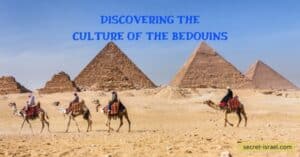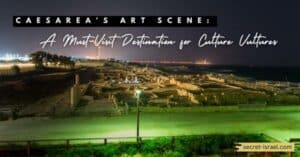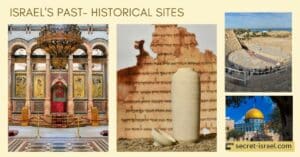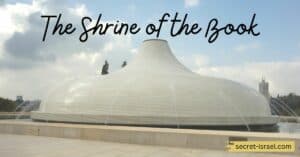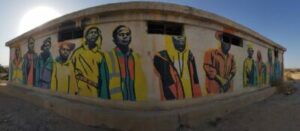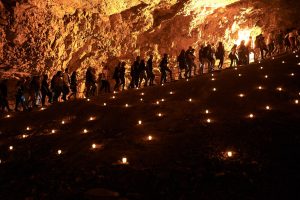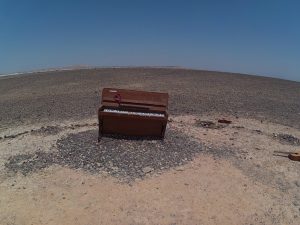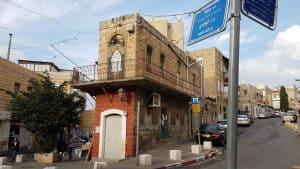If you’re looking for an unforgettable experience in Israel, then the Magdala Center is one to include on your list. Located in northern Israel, this site stands out as a unique place to explore and learn about Jesus’ life during his earthly ministry. From archaeological finds to spiritual experiences, the Magdala Center offers an amazing and rich experience that will bring you back in time. Read on to find out more about this incredible place and why it should be included in your itinerary.
The History and Significance of the Magdala Center
The Magdala Center is an archaeological site located in the northern part of Israel, near the Sea of Galilee. It has been a place of spiritual significance for Jews, Christians, and Muslims alike since ancient times. The site was once home to a Jewish town known as “Magdala Nunayya” or “Magdala of the fish”.
The archaeological site, which includes a synagogue and mikveh (ritual bath), was discovered in 2009 and is believed to have been an important stop on Jesus’s journey through Galilee. The architectural details found at the site suggest it was built during the first century CE, making it one of the oldest synagogues in existence.
The Magdala Center is also an important religious site for Christians, as it is believed to be where Jesus performed several miracles, including his first public miracle of turning water into wine. The location has been a place of pilgrimage for centuries and continues to draw visitors from all over the world who come to pay homage to the holy site.
Today, the Magdala Center is home to a community center and retreat house dedicated to deepening understanding between different faiths. The center includes a synagogue, a chapel, gardens, and other cultural features as well as archaeological remains from the ancient city of Magdala. It provides programs for dialogue, spirituality, and social justice.
The Magdala Center is a symbol of faith and unity, reminding us all of our common heritage as people of the Abrahamic tradition. It serves as a reminder that we are all connected by a shared history and commitment to peace and understanding. The site also serves as an important pilgrimage destination for those looking to deepen their spiritual practice. As the center continues to expand and develop, it will remain a place of reverence and learning for many years to come.
Address: Migdal Junction, Tzomet Mango P.O.B. 366, 14950 מגדל, 1495000, Israel
Opening Hours: Sunday – Monday 8 AM–6 PM
Phone: +972 4-620-9900
Navigate here to see the location’s actual view.
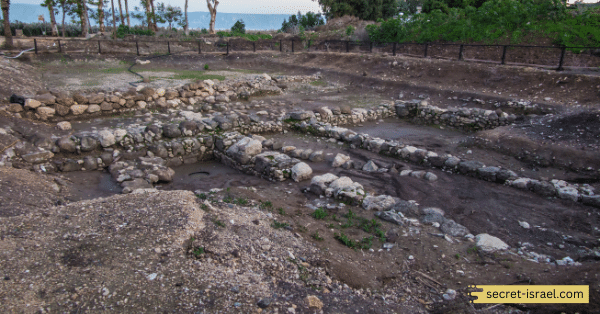
Exploring the Archeological Excavations at Magdala
In addition to its spiritual significance, the Magdala Center is also a fascinating archeological site. Since 2009, excavations have been underway at the site uncovering artifacts and remains from the ancient city of Magdala. These excavations give insight into daily life in first-century Galilee, including pottery and coins as well as burial sites.
In addition to the synagogue, mikveh, and other ancient structures, the excavations at Magdala have also uncovered evidence of a large public bathhouse as well as several residential quarters and a harbor. These findings provide valuable insight into how people in this region lived during the time of Jesus.
The archeological excavations at Magdala provide an important window into the history of this region and of Christianity itself. The artifacts recovered from the site offer a glimpse into everyday life in first-century Galilee and are an invaluable resource for historians, archeologists, and religious scholars. The excavations also speak to the importance that the site held for people of all faiths.
The Magdala Center is an important religious and cultural site, providing insight into both the past and present. The excavations at the site have provided invaluable information about life in ancient Galilee while also offering a place of spiritual solace for people of all faiths. From its ancient synagogue to its modern-day community center, the Magdala Center is a remarkable symbol of faith and understanding.
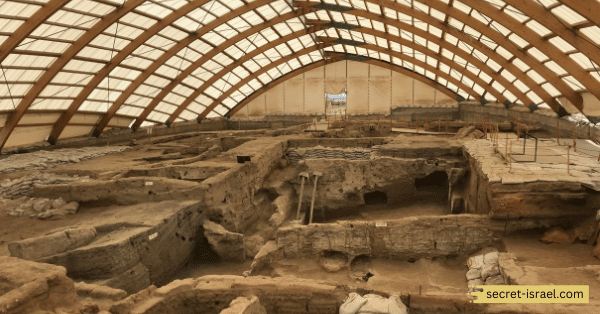
Experiencing the Daily Life of Jesus’ Time at the Magdala Center
The Magdala Center also offers visitors the opportunity to experience a taste of daily life as it was in first-century Galilee. The center features interactive exhibits that recreate life during Jesus’ time, from the marketplace and synagogue to homes and workshops. Visitors can also explore the harbor and learn about the importance of fishing to this region’s economy.
The Magdala Center also offers educational programs and workshops that delve into topics such as Jewish culture, history, and faith. Visitors can take part in guided tours of the site and learn more about the significance of the archaeological discoveries at Magdala. All visitors leave with a deeper understanding of this holy site and its place in both religious and cultural history.
The Magdala Center is an important religious and cultural destination in Israel, offering visitors a unique opportunity to explore the past and present. With its spiritual significance, archaeological finds, and interactive experiences, the Magdala Center is a place of learning and reverence for all who visit.
The Role of the Magdala Center in Modern Christianity
The Magdala Center is a reminder of the shared heritage among Abrahamic believers and the importance of peace, understanding, and dialogue. It serves as an important educational resource for Christians all over the world who seek to deepen their faith by learning more about Jesus’s life in first-century Galilee.
The Magdala Center also provides a place of respite and reflection for those of all faiths. Its peaceful atmosphere encourages visitors to pause and reconnect with their spirituality, offering a unique opportunity to reflect on the human experience shared by believers from multiple traditions.
The Magdala Center is an important site not only for its past significance but also for its modern purpose. It is a place of faith, learning, and peace that brings together people from all walks of life to learn more about our shared heritage and grow in understanding.
The Magdala Center provides an important reminder that we are all connected by a shared history and common commitment to peace, dialogue, and mutual respect. Through the archaeological excavations and educational programs available at the center, visitors can gain a deeper appreciation for the culture and faith of those who lived in Jesus’s time. The Magdala Center offers an inspiring reminder of our shared humanity and our collective commitment to peace, understanding, and spiritual growth.
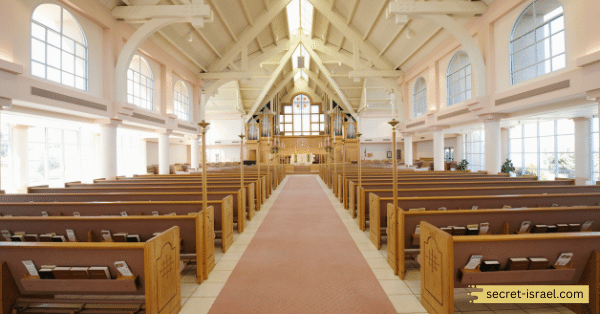
Future Plans for the Magdala Center’s Development and Expansion
The Magdala Center is an ever-evolving site that continues to develop and expand with time. The center recently opened its doors to visitors, offering tours of the grounds as well as programs on Jewish culture and archaeology. Plans are also in place to build a museum at the site, which will serve as a repository for artifacts unearthed during the excavations.
The center also plans to expand its educational programs and host conferences on topics related to Jewish history and culture, religious dialogue, and meditation practices. In addition, the center hopes to build additional community features such as a garden and cafe that will provide visitors with a place of respite for prayer and contemplation.
The Magdala Center is a place of incredible archaeological, spiritual, and historical significance. Its ongoing development and expansion will serve as an important reminder of our shared history and understanding of the Abrahamic tradition. The center’s plans for increased educational opportunities, cultural programs, and community outreach will ensure that it remains an important site for many years to come.
In conclusion
The Magdala Center is an important religious, spiritual, and archaeological site that serves as a reminder of our shared heritage. Its ongoing development and expansion will ensure that it remains a place of learning, prayer, and dialogue for many years to come.
The Magdala Center is more than just an archaeological site; it is a symbol of our shared faith, history, and commitment to peace. We can all draw strength from this holy site as we work together to build a better future for ourselves, our families, and our world.


